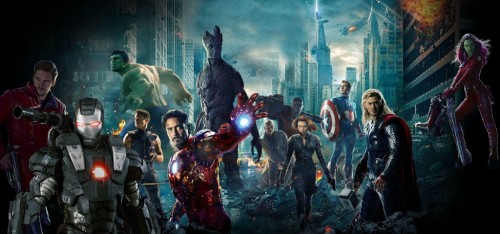By Greg Popil
In 1993, Lois Lowry’s young-adult novel “The Giver” was an award-winning breakthrough, a book that introduced an entire generation to the type of dystopian-future literature that dominates the demographic’s reading choices today. Difficult though it may be to believe, it was a mere two decades ago that the premise of a special, chosen teenager fighting the tyranny of an oppressive, authoritarian society was considered novel. Along with a slew of novels, movies as diverse as “Pleasantville” and “Equilibrium” have used key elements of “The Giver’s” plot in their own stories.
So it is a sad irony that the film adaptation of “The Giver,” released 21 long years after the book, appears so derivative of the adaptations of the books that were themselves so influenced by the “Giver” novel (“Battle Royale,” “The Hunger Games” series, “Divergent,” the upcoming “The Maze Runner”). A book as influential as “The Giver” deserves better than an adaptation that seems destined to be lost in the crowd.
Of course, it doesn’t help that, as a movie, “The Giver” is a mostly flat, uninspired slog that never finds a voice of its own. The movie begins as Jonas (Brenton Thwaites), an 18-year-old boy living in an insulated society drained of all color and feeling, is chosen to be The Receiver of Memory, a position that will allow him to experience the entirety of human feeling before it was closed off from the rest of the population (for their own good, we’re told), with all the pleasure and pain held therein. Guiding him on this journey is the previous Receiver (Jeff Bridges), who has experienced his own share of pain beyond what he feels for others. Jonas begins to see colors (an apple, the red hair of a girl he likes; the symbolism is not subtle), experience joy and love, and eventually the horrors of pain and loss.
It isn’t hard to imagine this being a great movie, with stunning visuals, if it were made by a director with a distinctive style. Unfortunately, Phillip Noyce, a journeyman director who has made some competent films (he helmed Harrison Ford’s Jack Ryan movies, the best in the series) brings no hint of his own personality to the proceedings. The black-and-white sequences, which should be stark and harsh, look like the color setting turned down to zero on an old TV set. Sequences that should exhilarate, like a slide down a service ramp that Jonas uses to try to bring some joy to his friends, are as bland as a TV movie. Cinematographer Ross Emery takes a golden opportunity to shoot a visual feast and fails at every turn.
“The Giver” is the second major role this summer for Thwaites, after playing Prince Charming in “Maleficent,” and in neither movie does he make even the slightest impression. Jonas is supposed to begin to burst with emotion as the weight of the world is thrown upon his shoulders, but it’s impossible to tell the difference; he acts exactly like the same goofy, moody cipher before and after his awakening. The biggest disappointment, however, is Bridges. Inarguably one of the greatest actors of the modern era, Bridges is clearly phoning in his performance, conveying none of the passion or regret necessary to portray The Giver. He and Thwaites have zero chemistry, crippling the heart of the movie.
The supporting cast fares better. As the mildly sinister leader of the community, Meryl Streep shows yet again why she is considered the greatest actress alive. She conveys more menace with a slint-eyed glance at a sarcastic remark than most could with ten pages of dialogue. Hackneyed lines like, “When people have the freedom to choose, they choose wrong,” sound awful on paper, but Streep’s delivery freezes the blood. Better yet are Katie Holmes as Jonas’ icy mother and especially Alexander Skarsgard as his kind yet utterly indoctrinated father. The moment where Jonas discovers the truth about his father’s occupation is one of the only scenes of real horror in the movie.
“The Giver” attempts to build a head of steam as it heads towards its climax (an unbelievably convoluted plan to restore the people’s humanity that made no sense when I watched the movie, and somehow even less so as I think about it later), but remains stuck in neutral. Jonas takes a torturous journey of self-sacrifice to save an innocent life and possibly the world, but the sequence feels rushed. A brief 97-minute running time seems like it would be in the movie’s favor, but this is a story that could have used more room to breathe. Jonas’ journey barely registers, and the film even sacrifices the book’s wonderfully ambiguous ending. That may have been for the best, however: it’s hard to see anyone screaming for a sequel to a film this sadly uninspired.
Rating: 28/81




Leave a Reply